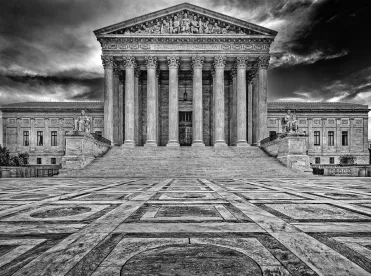On November 16, 2018, the United States Supreme Court granted certiorari in United States ex rel. Hunt v. Cochise Consultancy, Inc., 887 F.3d 1081 (11th Cir. 2018). The question presented to the Court is “whether a relator in a False Claims Act qui tam action may rely on the statute of limitations in 13 U.S.C. § 3731(b)(2) in a suit in which the United States has declined to intervene and, if so, whether the relator constitutes an “official of the United States” for purposes of Section 3731(b)(2).”
Section 3731(b) requires an FCA case be filed either (1) six years after the date on which the violation…is committed, or (2) three years after the date when facts material to the right of action are known or reasonably should have been known by the official of the United States charged with responsibility to act in the circumstances, but in no event more than 10 years after the date on which the violation is committed, whichever is later.
In Cochise Consultancy, Inc., the Eleventh Circuit held that § 3731(b)(2) was available to a relator in a non-intervened case. The court also held that the relevant person whose knowledge triggers the limitations period is an official of the United States.
The Eleventh Circuit’s decision deepens the divide among circuits as to how to apply § 3731(b)(2), creating a three-way circuit split. The decision is a departure from the Fourth Circuit and Tenth Circuit. Both courts determined that § 3731(b)(2) extends the statute of limitations period only if the government is a party. See United States ex rel. Sanders v. N. Am. Bus Indus., Inc., 546 F.3d 288 (4th Cir. 2008); United States ex rel. Sikkenga v. Regence BlueCross BlueShield of Utah, 472 F.3d 702 (10th Cir. 2006).
The decision is also a departure from the Third Circuit and Ninth Circuit. The Third Circuit and Ninth Circuit also held that § 3731(b)(2) is available when the government does not intervene. However, the three-year period depends on the relator’s knowledge. See United States ex rel. Malloy v. Telephonics Corp., 68 F. App’x 270 (3d Cir. 2003); United States ex rel. Hyatt v. Northrop Corp., 91 F.3d 1211 (9th Cir. 1996).
The Supreme Court’s decision to tackle this issue will provide clarity to businesses subject to the FCA because it will likely provide an answer as to how long a relator has to bring an action when the government has not intervened. It could also do away with any forum shopping that relators currently have the ability to engage in.



 />i
/>i

